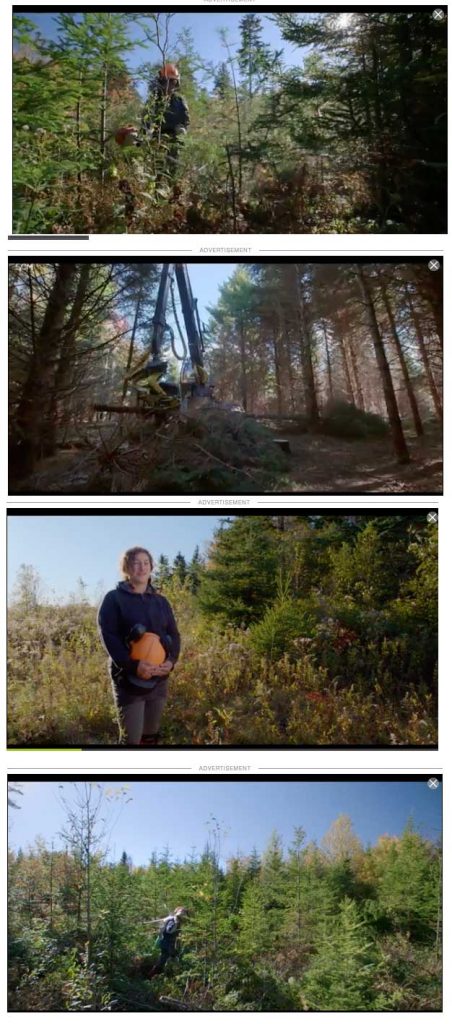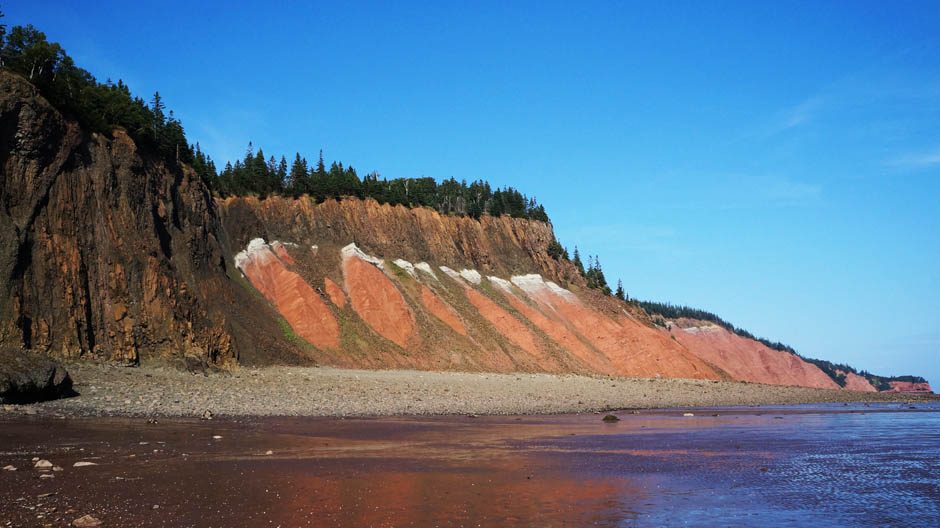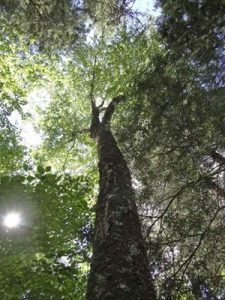In the midst of Zack’s article bemoaning our loss of spectacular forests, a video-ad appeared extolling the benefits of our current forestry practices
“Why”, asked Zack Metcalfe, “are the wilds of Canada’s West Coast fundamentally more spectacular than those of the Maritimes?”
From foresters to botanists, he could “only get informed theories and stumped expressions”. That was until, over a cold beer, “someone I respect a great deal, with decades of experience behind their answer, leaned forward and shared the big picture:
“Zack, consider the pastures of Scotland. They seem to go on forever, naturally, interrupted by only the occasional tree. But it wasn’t always like that. Scotland was once a forested country, except generations of cutting has left it bare. Now look at Nova Scotia. We still have forests here, but how many times have they been cut over? Four? Five? We impoverish our soils with every clearcut and what grows back is a little less impressive than its original self. So we’re in the middle stage. Out West, their forests have only been cut over once or twice, never in some cases. Harvesting over there is still out of control, but their forests haven’t dealt with it long enough to lose their size or beauty.
“The difference between Scotland’s forests, Nova Scotia’s forests and British Columbia’s forests is a thousand years of cutting, 400 years of cutting and a century of cutting, respectively. There’s still time to preserve and value giant forests out west, but here, we’ve missed our chance.”
That answer raised another question for Zack: “Are we even capable of co-existing with arboreal beauty?”
Read more of this introspective article in Zack’s Endangered Perspective series: METCALFE: Thoughts on a missed opportunity for Nova Scotia forests Published April 16, 2018 in South Shore Breaker (Chronicle Herald).
————

Screenshots from the video advertisement inserted into the online version of Zack’s article. Zack bemoans the loss of “spectacular forest” represented by scenes such as these; Forest NS presents them as evidence of productive forest management and the provision of jobs that allow employees to realize their passion for working in the forest.
Interestingly, just after I made this post, I checked out the link to Zack’s article.. and in the middle of the CH article a short video/ad by Forest Nova Scotia appeared with the message “We are working very hard for a future that is not for us, we are dedicated to making sure there is something here always in the future that will support us”. It was a shortened version of a lengthier video posted on Forest Nova Scotia’s website and on YouTube.
Targeted Advertising? I dunno. It was one of several video-ads that cycled through as I refreshed the webpage (others, e.g., autotrader.ca, bison-jacks.ca).
The juxtaposition of the two quite disparate perspectives of NS forests (Zack’s and that of Forest NS) says something about the challenges facing the Independent Review of Forest Practices and ultimately all Nova Scotians as we seek an inclusive course forward for Nova Scotia’s forests and forestry.
The contrast reminded me of an article I had recently tagged: Foresters and ecologists see forests differently by George Wuerthner in the Independent Record, Apr 3, 2018. Says Wuerthner, “There is a huge difference between the industrial forestry worldview and an ecological perspective”. He cites several examples, e.g.
Where foresters see wood fiber for the mill, an ecologist sees carbon storage on the ground. Indeed, even burnt forests store more carbon than thinned forests.
Where foresters believe they are “improving” the forest through manipulation, ecologists see manipulation as degrading forest ecosystems.
—————–
April 18, 2018:
In today’s Morning File, Halifax Examiner’s Tim Bousquet features comments on Zack’s article, recalling THE LAST STAND: The War Between Wall Street and Main Street Over California’s Ancient Redwoods by David Harris 1995, Times Books, 388 pp. Says Bousquet:
I think about the Pacific Lumber story when I consider Nova Scotia forests. We’re long past the point of cutting primarily for lumber. Now we’re mostly going after the trees for pulp and biomass. There’s not a whole lot there, and like Hurwitz in California, trees just standing around doing nothing are considered under-utilized assets, so better to cut them down.
View Nova Scotian forests: the Scottish model (Halifax Examiner, Morning File Apr 18, 2018).
I was pleasantly surprised by Bousquet’s comment that he found Zack’s article “through reading David Patriquin’s Forest Notes site, which is now part of my daily routine”.

